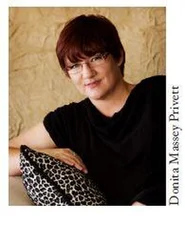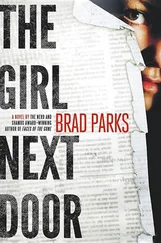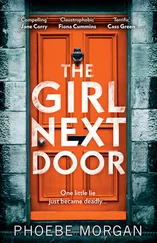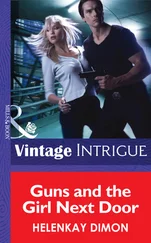No one commented on that. Lewis expected someone to say how sorry they were to hear of Jo’s death but no one did. Lewis didn’t mind, he never knew what to say in response to condolence, but he thought it strange. Helen said lunch would soon be ready. Stanley let the dog out into the garden and George, opening a huge photograph album, showed Lewis the sole picture of the qanats that existed. The entrance to the tunnels was crammed with grinning children, none of whom Lewis could recognise. George began talking about going there, when they’d found the place and where it was.
‘I reckon I was the first of us to go in there.’
‘And me,’ said Stanley. ‘I was with you. It was quite brave of us. The whole thing might have collapsed, the roof fallen in.’
‘Quell,’ said George, ‘was more interested in any adults who might have gone in there, people we’d seen.’
‘Who’s Quell?’
‘Policeman. He came to George’s and we all went over and talked to him. Well, all – those we could find. Those who are still alive. There was me, Norman, George and Michael Winwood, Alan Norris and that woman Rosemary he married – oh, and Daphne Jones. Daphne Furness as she is now.’
There was a silence, brought about as so often by the utterance of that name. Only Lewis repeated it. ‘Oh yes, Daphne Jones,’ he said, and then, ‘This cop wanted to know about adults in there? What, brought along by one of us?’
‘I suppose so,’ said Stanley. ‘Even if we had, he or she would be dead by now.’ Before he could say more, Helen came back to tell them lunch was ready.
It was a very good lunch, much appreciated by Lewis along with the nicely laid table, the silver and glass and the pink tulips in a Royal Copenhagen vase. Such beautifully prepared food and carefully chosen wine hadn’t come his way since Jo fell ill all those years ago. It softened his attitude to the Batchelors without making him wish to disclose who he thought that adult visitor to the tunnels might have been. And yet, he thought, as he increasingly did these days, at his age he didn’t have what he had not long ago taken for granted, an indefinite future. He was one of the oldest of the tunnel occupants and would not, as he put it wryly to himself, eating his crème brûlée with gusto, see seventy-five again. Arthritis wouldn’t kill him but his dodgy heart might.
This reverie was interrupted by Helen offering him a penny for his thoughts. He responded by asking with a reflective smile if anyone under thirty, for instance, would understand what that meant. His remark went down badly with Helen, who probably supposed that she was generally taken for coming within that age range herself. Maureen failed to improve matters by catching Lewis’s eye and giving him a look that was not quite a wink.
‘It’s my belief,’ she said as they left the table, ‘that we shan’t hear much more of those hands. Sorry, but I didn’t want to mention it while we were eating. The police must know by now that they’re never going to find who they belonged to, and anyway, who really cares?’
Nobody replied to that. They all sat down and George remarked that his leg was giving him gyp. When Maureen was ready?
‘I’ll just have my coffee now Helen’s gone to all the trouble to make it.’
Lewis passed the rest of his time in Theydon Bois finding out from Stanley how and where to get in touch with Detective Inspector Colin Quell, and when George and Maureen left, he said he must go too. It was a long way to the other end of the Central Line. He thanked Helen profusely for lunch but he could tell he had offended her with his comment about the penny for his thoughts. Unexpectedly, Stanley said he would come with him to the station. Spot would enjoy another walk.
‘Why do you call him Spot when he’s black all over?’ Lewis asked.
‘I asked my grandson to name him and he’s only six. Spot was the only dog’s name he knew. I couldn’t have any more Nippers.’
‘Why didn’t anyone ask me to this meeting you had with the policeman?’
‘Don’t ask me,’ said Stanley. ‘Didn’t know how to get hold of you, I reckon.’
Lewis said no more. Instead he contributed the few doggy tales he could remember and Stanley rejoined with anecdotes of past canines he had owned. The station was soon reached and Stanley, to Lewis’s relief, departed, saying Spot would get fractious if expected to hang about. Lewis had been longing for the chance to be alone and think about George’s remark on the subject of adults going into the tunnels. It was a fine, mild afternoon and sitting on the seat on Theydon Bois station platform was no hardship in the sunshine. Even if it took half an hour before the train came, he had plenty to think about.
Whether any of the others had ever taken an adult into the tunnels, he didn’t know, though he thought not. There was an unwritten law not to involve grown-ups. Human beings make laws even when they are only ten or eleven years old and take no notice of them when they feel like it. Whatever others had done, he had flouted that rule. He hadn’t meant to, or rather, he hadn’t wanted to, but Uncle James had kept on at him about it.
As he sat on the seat in this semi-rural place, the effort of remembering threatened to send him to sleep. He was old and it was true what they said, that the old remember events of their childhood better than what had happened this morning. He rested his head back against the seat and sleep came. A snore that was more like a noisy snort woke him and he realised that the woman who had come to sit next to him must have heard it and perhaps been amused. Age also brings something advantageous: old people no longer feel much embarrassment. There has ceased to be any point in it. It’s a waste of time and time is valuable now. What had he been thinking about before he fell asleep? He had forgotten, and the train was arriving.
He had also forgotten where he had got to in The Count of Monte Cristo , but it didn’t much matter as he had read it so many times before and a favourite point in the adventure was soon turned to. By this time he had also forgotten all about getting in touch with Detective Inspector Quell.
He woke up in the night and knew at once that he wouldn’t get to sleep again. Four o’clock was the witching hour. There was no hope at four. He could get up and walk about the house, he could make a cup of tea, drink whisky (a fatal choice, this), stay in bed and read some more, put the radio on. If one of those remedies worked and sleep came back until, say, six he’d think himself very lucky and feel quite cheerful. But it seldom did, so he did nothing and thought about Uncle James instead. It was his fault for telling his uncle something he would never have told his parents, that there was a secret place where he went on summer evenings to meet a crowd of friends and play all sorts of games. It must have been the end of July or early August. Whether it was after the end of term or before that he couldn’t remember, and again he cursed himself for forgetting so much.
Uncle James was staying with them in Brook Road. It was the time his mother noticed how he was often out in the evenings. Lewis saw it too but it meant nothing to him. He was a child, to whom the ways of grown-ups were necessarily strange. Lying awake, Lewis looked back across his long life, from twelve years old through his teens and Bancrofts School, to Cambridge and medical school; at last, after general practitioner training, a place in a GP partnership in Ealing. Meeting and falling in love with Alison, the whole thing coming to grief until he settled into marriage with Jo. All the way along the road he must have learned how to live, or he should have done, acquiring experience and sophistication. If he had talked to Uncle James then, when he was forty, he would have known where his uncle went and why he wanted to see the qanats, but not when he was twelve. Not in 1944, when, in spite of the war and the bombs and their parents’ fear for them, middle-class children living in Loughton were naïve and innocent.
Читать дальше












